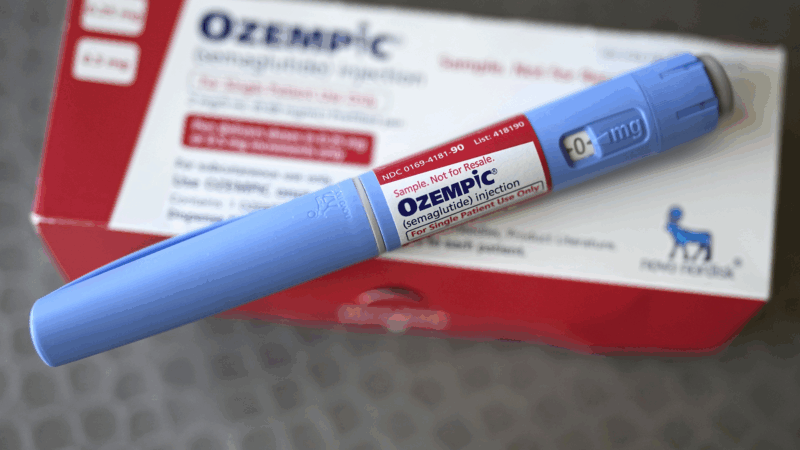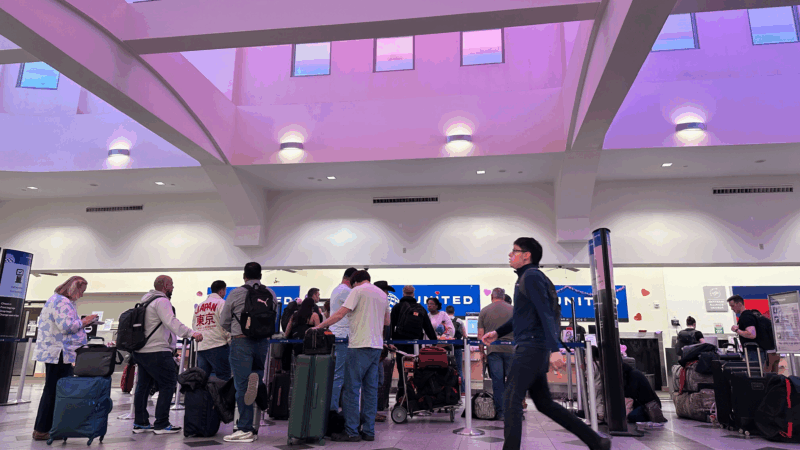The FDA warns patients about counterfeit Ozempic that may be in circulation
The Food and Drug Administration is warning people to be on the lookout for counterfeit Ozempic, the diabetes drug that many people use off-label for weight loss.
The federal agency and Novo Nordisk, the Danish pharmaceutical giant that makes Ozempic, said this week that they had learned about “several hundred units” of the drug that made it onto the market outside of the company’s approved supply chain.
Ozempic, made by Novo Nordisk, is part of a class of drugs known as GLP-1 agonists. The drugs are used to treat type 2 diabetes and obesity.
The FDA said it was notified by Novo Nordisk about the counterfeit drugs on April 3 and that it seized the identified products on April 9.
Still, both the agency and the company urged consumers, sellers and medical professionals to double-check their Ozempic on hand. The counterfeit products have both the lot number PAR0362 and a serial number starting with 51746517. The lot number is authentic, but the serial numbers are not, the company said.

Novo Nordisk reported six adverse events related to this lot of medication, which included both authentic and counterfeit doses. The adverse events appear to be connected to authentic Ozempic, and the side effects were those you might typically see with the drug, according to a company spokesperson, though they did not detail the specific side effects experienced in these cases.
This isn’t the first public warning about counterfeit Ozempic. In 2023, the FDA alerted the public to thousands of counterfeit doses that had gotten into circulation.
A spokesperson for Novo Nordisk declined to comment Wednesday on where the counterfeit drugs originated and whether they were related to the 2023 warning. The FDA did not reply to a request for comment.
Dave Moore, Executive Vice President of Novo Nordisk’s U.S. Operations, said in a statement that the company is taking the “growing number of incidents involving counterfeit versions of Ozempic” seriously.
“It is gravely concerning, and we do all we can to alert patients, healthcare professionals, wholesalers, and retail pharmacies, about counterfeit incidents when they arise,” Moore said in a statement.
Novo Nordisk said Monday that an investigation of the counterfeit Ozempic units, including chemical testing, was underway.
“Accordingly, neither Novo Nordisk nor FDA can confirm the contents or quality of the counterfeit product, which may present a safety risk for patients who use the counterfeit product,” the company said in a press release.
The FDA said Monday that it and Novo Nordisk were testing the seized products but “do not yet have information about the identity, quality or safety of these drugs.”
Novo Nordisk told patients not to use any Ozempic with the corresponding lot and serial numbers, and it encouraged retail pharmacies to only purchase the drug from the company’s authorized distributors.
AI brings Supreme Court decisions to life
Like it or not, the justices are about to see AI versions of themselves, speaking words that they spoke in court but that were not heard contemporaneously by anyone except those in the courtroom.
These monks’ walk for peace captivated Americans. It ends this week
A group of Buddhist monks walked from Fort Worth, Texas, to Washington, D.C., in the name of peace. The 108-day pilgrimage captivated Americans.
The airspace around El Paso is open again. Why it closed is in dispute
The Federal Aviation Administration abruptly closed the airspace around El Paso, only to reopen it hours later. The bizarre episode pointed to a lack of coordination between the FAA and the Pentagon.
‘Dawson’s Creek’ star James Van Der Beek has died at 48
Van Der Beek played Dawson Leery on the hit show Dawson's Creek. He announced his colon cancer diagnosis in 2024.
A Jan. 6 rioter pardoned by Trump was convicted of sexually abusing children
A handyman from Florida who received a pardon from President Trump for storming the U.S. Capitol on Jan. 6, 2021, was convicted on state charges of child sex abuse and exposing himself to a child.
A country-pop newcomer’s debut is your reinvention album of 2026
August Ponthier's Everywhere Isn't Texas is as much a fully realized introduction as a complete revival. Its an existential debut that asks: How, exactly, does the artist fit in here?






